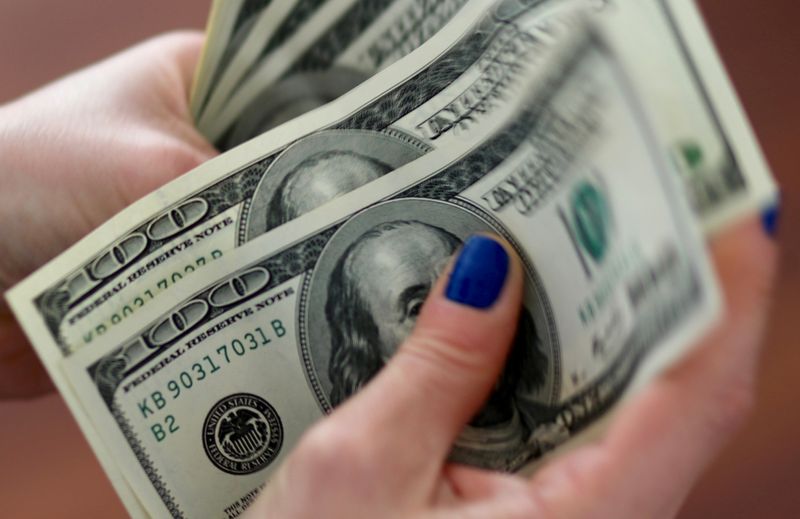By Tom Westbrook
SINGAPORE (Reuters) - The dollar eased from a three-week high on Friday but looked set for a modest weekly gain as rising Sino-U.S. tensions and worries about a second wave of coronavirus infections rattled investors.
As hopes wavered for a quick global recovery from the pandemic, the trade-sensitive Australian dollar was poised to snap five weeks of gains with a 1% drop, its first weekly loss since early April.
The Aussie
The kiwi
The Antipodean pair, like other majors, have struggled for traction in May as investors and authorities weigh optimism about easing virus containment measures against the risk of more infections and the sheer scale of economic damage already wrought.
"The market is sort of in a wait-and-see mode at the moment, waiting to see in particular whether U.S.-China trade tensions really do escalate," said Rodrigo Catril, senior foreign exchange analyst at National Australia Bank (OTC:NABZY).
The yen
The dollar is up about half a percent on the yen this week and half a percent against a basket of currencies (=USD).
"With risk appetite stretched and price momentum easing, trading is likely to be entering a choppy period," ANZ analysts said in a note on Friday which forecast a bearish outlook for riskier currencies in the month ahead.
"Markets now turn to slower factors that will either lead global economies out of hibernation or condemn risk markets to lose altitude."
RISKS REMAIN
Gradual re-opening of the world's economies has come with a dawning of how deeply the pandemic has damaged supply chains, labour markets and global demand.
Data on Friday showed China's April industrial output beating expectations but consumption was stuck in the doldrums.
An already-dismal near-term U.S. economic outlook has darkened further in the latest Reuters poll of economists, with a forecast for a 35% annualised second-quarter contraction.
And increasing tension between the United States and China is the latest potential spanner in the works of global growth.
"The three big risks remain: a second wave of coronavirus cases; collateral damage from the shutdowns resulting in a delayed or very slow recovery; and an escalation in U.S.-China tensions," said Shane Oliver, chief economist at Australian wealth manager AMP (OTC:AMLTF) Capital.
"On the latter, the risks will likely escalate dramatically if Trump’s approval rating collapses leading him to conclude that he has nothing to lose by trying to 'wag the dog'."
In an interview with Fox Business Network broadcast on Thursday, U.S. President Donald Trump said he was disappointed with China's failure to contain the coronavirus and suggested he could even cut ties.
China insists it has been transparent. But the yuan, which is highly sensitive to relations between the world's two biggest economies, was on the back foot and touched a one-week low of 7.1026 in onshore trade
Elsewhere the British pound

The euro also hit an almost five-year low against the Swiss franc of 1.502 francs (EURCHF=) as the crisis puts pressure on the single currency. It last held at $1.0804 (EUR=).